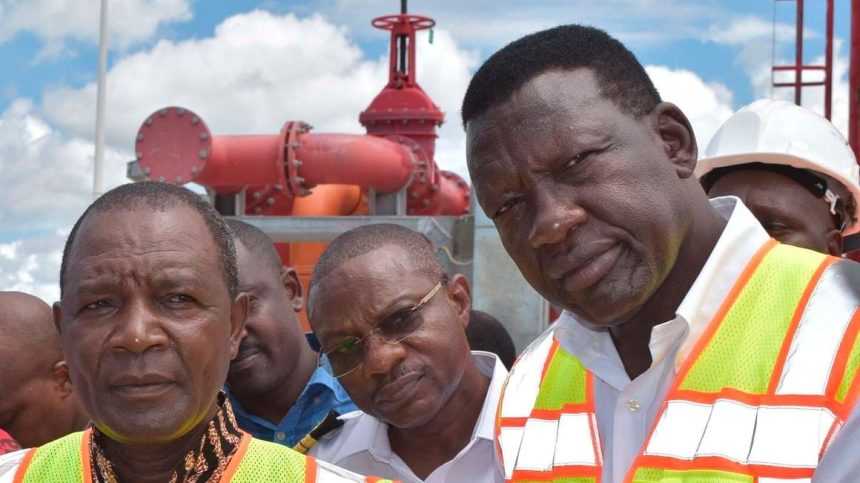The Treasury has sought to allay fears of financial risks under the government-backed fuel imports that started in April in a bid to reduce monthly dollar demand and stem the free-fall of the shilling.
Treasury Cabinet Secretary Professor Njuguna Ndung’u said in response to an article by the Business Daily that the letters of credit in the deal are a ‘good business model’ used by both international and local banks.
“There is no risk in finance. The government is satisfied with the progress of the arrangement (G to G deal) which has created a relatively stable forex environment and enhanced supply of petroleum products,” Prof Ndung’u said.
The International Monetary Fund had raised concerns that Kenya is exposed should pump prices not be adjusted to fully pass through any forex valuation losses to consumers and to provide access to dollars to cover any potential shortage of foreign currencies in the domestic market.
Prof Ndungú says the government entered into Master Framework Agreements on March 10 2023 for the supply of petroleum products on a 270 days term and on an extended credit period of 180 days.
Kenya then started importing fuel on the 180-day credit period in April under a deal with the governments of Saudi Arabia and the United Arab Emirates (UAE) in a bid to ease dollar demand and halt the free-fall of the shilling.
“The market will someday perfect the process and will not need the government to negotiate directly for them. So the same long-term supply of petroleum products at competitive prices and managed by the private sector,” the Treasury CS says.
The first payment is in four weeks’ time and comes against the backdrop of IMF’s concerns that outstanding payments will peak at six months of fuel imports and will then roll over as the first received cargo is settled and a new one is received.
“Based on April 2023 prices, the total obligation incurred is estimated at around $700 million per month for a total of over $4 billion by the end of September 2023,” the IMF says.
The first payment for the fuel is set for the 25th next month with Energy Cabinet Secretary Davies Chirchir saying that the banks have collected enough dollars for the payment in what will avert a sudden spike in demand for the dollar.
“We have been buying dollars since the arrival of the first cargo and we are set for next month’s payment. We will not have a sudden surge in dollar demand,” Mr Chirchir says.

Fuel imports account for nearly a third of Kenya’s monthly dollar requirements, estimated at $500 million and the demand saw banks selling the greenback at higher rates than those published by the Central Bank of Kenya, prompting the government-backed deal.
Under the deal, the Treasury provides comfort letters— which give a level of assurance that an obligation will ultimately be met—to exporters and local banks for the fuel supplied by Saudi Aramco, Emirates National Oil Company and the Abu Dhabi National Oil Company.
Gulf Energy, Galana and Oryx Oil import four cargoes of diesel, three cargoes of super and one cargo of dual-purpose kerosene under this deal.
Mr Chirchir says that the government is negotiating for more favourable terms on premium and freight from the three oil majors for the last three months of the current deal (October and December this year).
Prof Ndungú insists that the increase in the country’s forex reserves, which supports a less currency speculation environment that is self-fulfilling whilst revamping the country’s dormant interbank market.
“The interbank forex market has created that stability and predictability. Prior to G-G, OMCs experienced challenges in accessing sufficient dollars to pay for the product hence impeding the security of supply of petroleum products in the country.”



